It often triggers reactions rooted in old wounds and past experiences, particularly when we are feeling emotionally charged, sensitive, or vulnerable, making it difficult to respond with openness, clarity, and presence.
Trauma doesn’t just impact our emotions and thoughts; it affects our entire sense of well-being. These imbalances—whether emotional, physical, or energetic—often lead to conflict, miscommunication, and feelings of disconnection from ourselves and others.
Here are some common ways it can manifest in daily life.
Heightened Emotional Sensitivity:
One of the clearest signs of unresolved trauma is heightened emotional sensitivity. Small triggers may provoke intense emotional reactions.
This sensitivity stems from past pain, making it difficult to separate current experiences from old wounds as the rawness of those feelings resurface in the present.
Emotional Numbing:
Unresolved trauma can also lead to emotional numbing, where you suppress or avoid your feelings altogether. This might look like distracting yourself with overworking, binge behaviour, or substance use.
While these coping mechanisms provide temporary relief, they can lead to desensitisation, causing you to miss out on not only difficult emotions but also beauty, joy, and pleasure in life.
When emotions are avoided, they often resurface two-fold, creating overwhelming and anxiety-inducing experiences. Over time, this cycle becomes exhausting, leaving you feeling heavier and disconnected from your true self.
Disconnection from Sense of Self:
Unresolved trauma can make us feel disconnected from our sense of self. You might feel frozen, lost, or uncertain about who you are and what you want.
Trauma can lead you to question your intuition, causing you to lose trust in your inner compass and feel heavy, stuck without clear direction.
Discord in Relationships:
Sometimes, unhealed trauma can create a real barrier between you and the people around you. You might withdraw or avoid social interactions.
Fear of being hurt again can lead to emotional distancing, making it hard to form or deepen meaningful relationships. This can be particularly painful if you are seeking connection but feel lonely or disconnected.
When you begin to heal unresolved trauma, you create space for ease and flow in your life. This leads to healthier interactions, greater emotional resilience, and a more balanced response to emotional triggers. Challenges can become opportunities for growth and authentic connection with yourself and others.
Find Out More About What Chiropractic Care Can Do for You:
Healing often happens through connection, and building trust with yourself and others can help you open up again.
Our compassionate therapists are well-versed in guiding holistic transformation, using various modalities to support your individual journey. This process fosters your sovereignty, empowering you to move toward alignment and personal transformation.


